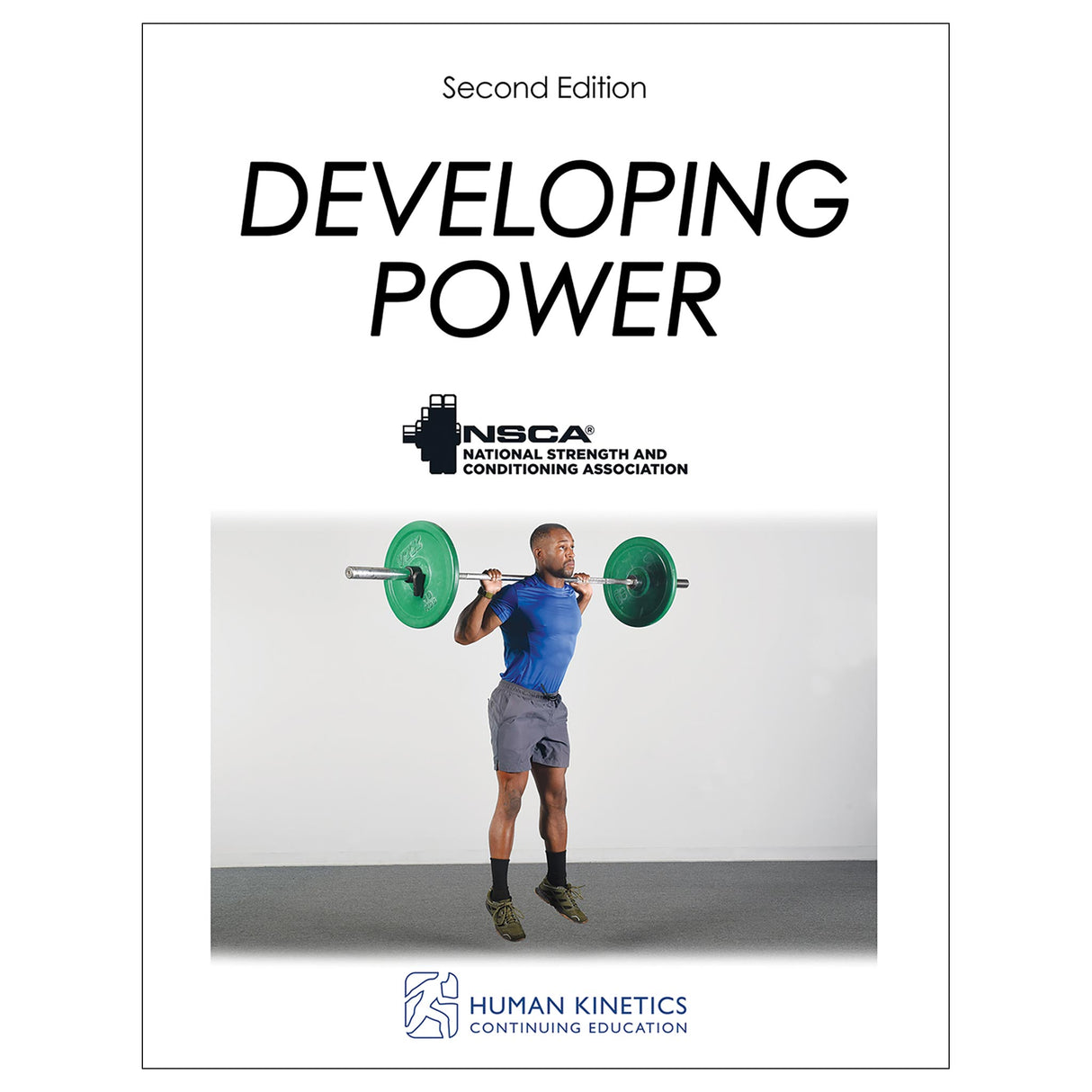Developing Power 2nd Edition Online CE Exam With Print Book
Author: Human Kinetics
$75.00 CAD
Human Kinetics strongly recommends that you complete your exam within the calendar year of your date of purchase to ensure approved credits do not expire for your organization.
- Developing Power, Second Edition, book
- Online continuing education exam
Written by the National Strength and Conditioning Association, Developing Power provides the latest research-based recommendations for assessing and training for muscular power. You’ll learn how to apply assessment protocols for jumps, throws, and ballistic exercises and how to apply the results to design programs to address specific athletic needs. In addition, you will find the following:
- Power training guidelines for 19 sports, including basketball, football, soccer, lacrosse, and mixed martial arts
- Step-by-step instructions and detailed photos for 84 upper body, lower body, total body, and anatomical core exercises
- Guidance on implementing progressions, regressions, and variations for 64 exercises
- Multiple training methods, such as ballistic training, weightlifting exercises, and plyometrics
- Sample programs for 9 team sports and 10 individual sports, including basketball, soccer, football (American), volleyball, baseball, track and field, swimming, wrestling, golf, rowing, boxing, and more
After reading the book, certified professionals can take the companion CE exam to earn continuing education credits.
Learning Objectives
- Explain the science of power development and the components of power.
- Discuss the relationship between strength and power.
- Use a variety of testing and assessment tools to evaluate power and measure the effectiveness of power training programs.
- Apply evidence-based principles and effective power training program design variables for athletes and for a range of populations.
- Identify a variety of power training modalities for the lower body, upper body, core, and total body.
- Design effective power training programs to maximize power in the lower body, upper body, core, and total body.
- Recognize the needs of power training for various individual and team sports.
- Design effective power training programs to maximize performance in various individual and team sports.
- Describe proper technique for power training exercises for the lower body, upper body, core, and total body.
- Explain the use of advanced power techniques and apply them appropriately.
Audience
Certified strength and conditioning professionals, personal trainers, athletic trainers, or other sport-related professionals who work with athletes who need to develop explosive power.Chapter 2. Assessing Power and Individual Training Needs
Chapter 3. Periodization and Programming for Maximizing Power
Chapter 4. Adapting Power Training to Special Populations
Chapter 5. Upper Body Power Exercises
Chapter 6. Lower Body Power Exercises
Chapter 7. Anatomical Core Power Exercises
Chapter 8. Total Body Power Exercises
Chapter 9. Advanced Power Techniques
Chapter 10. Training Power for Team Sports
Chapter 11. Training Power for Individual Sports





